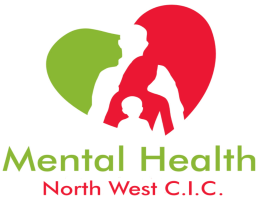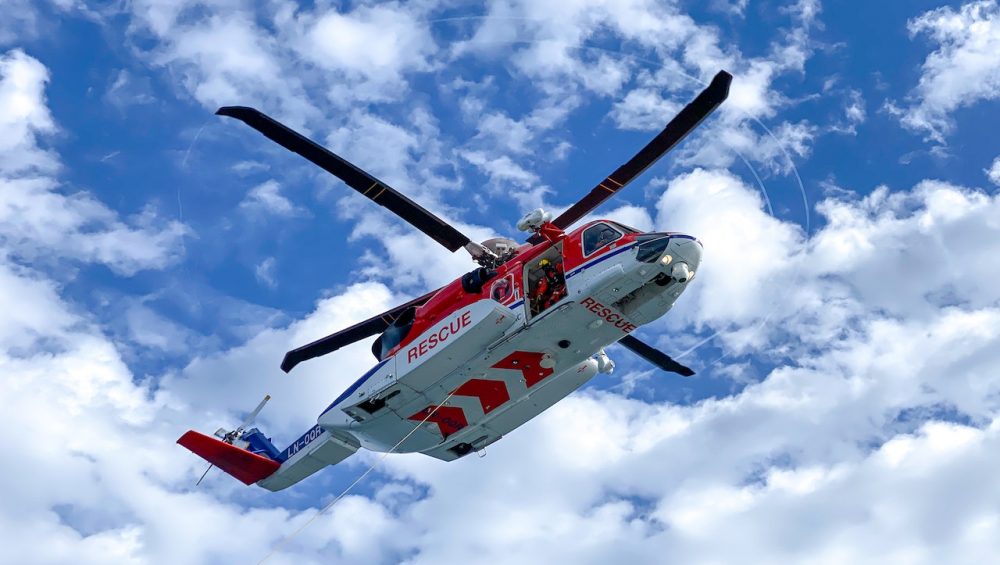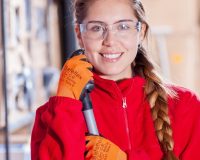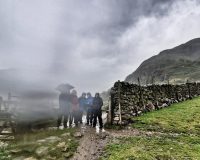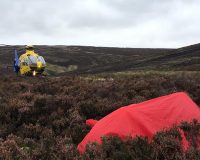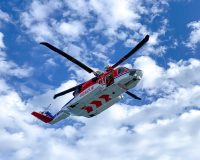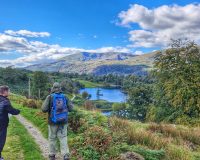Lessons need to be learnt
On October 30th 2021 one of the worst tragedies in outdoor activities for many years happened in Haverfordwest; a series of errors and a lack of appropriate experience ultimately led to four paddleboarders losing their lives in circumstances that should have been totally avoidable.
The outdoor sector needs to understand how this could happen, work out what lessons need to be learnt from it and how they apply in a far far wider context than just stand-up paddleboarding (also known as SUP).
In December the Marine Accident Investigation branch published their very detailed report – the conclusions make for very sobering reading:
- The leaders planning and preparation for the tour was inadequate.
- The leaders did not have the training, experience or qualifications to lead the tour.
- There was no means for the participants to judge the proficiency of the training and tour providers.
- This tragedy was totally avoidable.
The leader of this trip is currently facing criminal charges of gross negligence manslaughter & families have been devastated.
Wellness Walks have spent a long time reading and understanding the methodology of this tragedy, how it translates to what we (& others) do & what we feel our participants need to know.
Context for Wellness Walks
Providing organised walking events explicitly aimed at improving people’s wellbeing is a fast growing field much like SUP was.
It sits between somewhere between the outdoor & healthcare sectors meaning there is limited governance and a wide variety of practise. There no clearly defined best practise with regards to qualifications either in walking activities or supporting people with poor mental health, experience required (or checked), information gathering, and knowledge of the environments walks are undertaken in. This presents a number of potential issues similar to the SUP case above.

Almost anyone could organise a walk such as this, and there are many informal groups using things like Meetup and Heylo and generally they are positive although there is no objective way to measure their effectiveness. However even if participants sign a waiver the reality is that in a significant incident the ‘organiser’ would reasonably be considered responsible to manage the safety of participants i.e. assumed responsibility. There is a high chance that they would be held accountable should an investigation take place.
More formal wellness activities organised by traditional outdoor activity providers tend to have better processes involved with regard to activity qualifications, experience, information gathering and group management. Yet many also often overlook the importance of staff being well trained in the wellbeing side of things and their ability to create safe, inclusive group dynamics, to listen well and to know when a conversation has moved beyond their remit of “a listening ear” – especially in a context where many of the group members may be more vulnerable than their normal groups. There is often an underestimating of the high mental effort and emotional impact these activities may place upon group leaders and the potential need of support for them.

Obviously most of these activities take place without incident and with a positive impact. However with all activities there is potential for accidents and incidents. In this case the impact may be more emotional harm than physical but that is just as important and just as unwanted.
The wellbeing industry is slowly coming under increased scrutiny from the outdoor activities sector and there is a sense that the next “big incident” could come from here.
What Wellness walks is doing about this
Wellness Walks places participant safety at the heart of everything we do – and that means, in the context of our walks and events, not just physical safety but also your emotional and psychological safety.
We ensure all of our leaders are exceptionally qualified and experienced – they’re also all vetted by one of our Directors to make sure they understand the ethos of what we do.
So what do we mean by “qualified and experienced”?
Qualifications are a a way of showing competence – but only at the point at which the individual passed – you also need experience to keep that competence and to make sure you’re informed about developments and best practice. Think of it this way – if you passed your driving test ten years ago and then never drove a car – you’d still have a driving license – but how safe would you really be?

And what is a relevant qualification?
Wellness Walks only recognise actual qualifications i.e. there’s been a test of the individual’s knowledge – some form of formal assessment process. Far too many ‘courses’ are actually attendance based – so as long as you’re there at the start and finish you’ll get a certificate – that is not a qualification!
The minimum qualifications any of our Leaders will hold are:
- A relevant national walking award. In the UK walking qualifications are administered by Mountain Training UK & Ireland who have literally decades of experience in making sure training, experience and assessments are fit for purpose. Whilst we might not always be walking in the mountains – these qualifications are simply the best for knowing you’ve a qualified leader who can dynamically assess and alter plans to ensure group safety. Relevant qualifications are: Lowland Leader, Hill & Moorland Leader, Mountain Leader, International Mountain Leader.
- First Aid for Mental Health L2 or 3 qualification – specifically trained and assessed at supportive conversations, making and maintaining a safe space and how to help if someone is in crisis.
- Safeguarding, L3 Qualification. We can all be vulnerable at times – and stepping out of your comfort zone can often exacerbate that – our leaders know what do do if you need some help and support.
- Outdoor First Aid (minimum 16hr course) – accidents do happen – our leaders won’t panic, will know what do do, will take appropriate action.
- Experience – all of our leaders have shadowed Wellness Walks before they deliver them – have extensive experience delivering walks – know when to change a plan, when to say today is a coffee & cake day.
Support – all of our leaders are part of the larger Wellness Walks Team – we know the importance of checking in, supporting each other, talking things through – all things that mean we’re better equipped to deal with any challenges we might face.
closing thoughts
Accidents like Haverfordwest are thankfully very very rare – but we all have a duty to learn from them when they happen.
Sadly though minor accidents, events that just damage someones confidence, experiences that are simply unpleasant – they all happen far too often.
Our participants are always encouraged to get in touch, to question us about how an event will run, how we’ll look after them – we believe you’ve every right to expect we’ll look after you.
